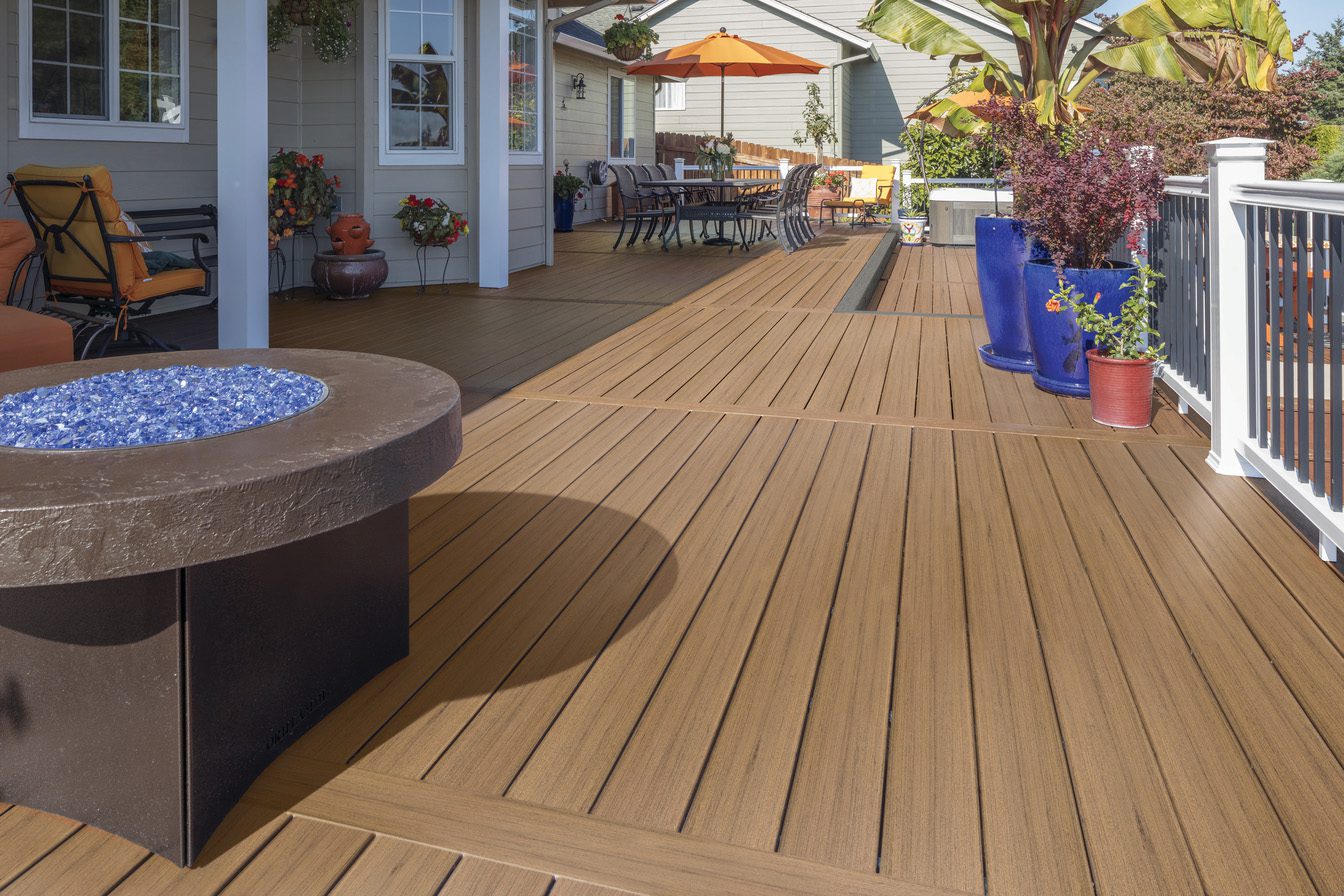Composite decking has become a popular choice for homeowners looking to enhance their outdoor spaces with durable, low-maintenance materials. Unlike traditional softwood, composite decking offers a range of options tailored to different needs and environments.
In this post, we’ll explore the main varieties of composite decking available today, including their composition, manufacturing processes, and standout features.
Wood Pulp Composite Decking
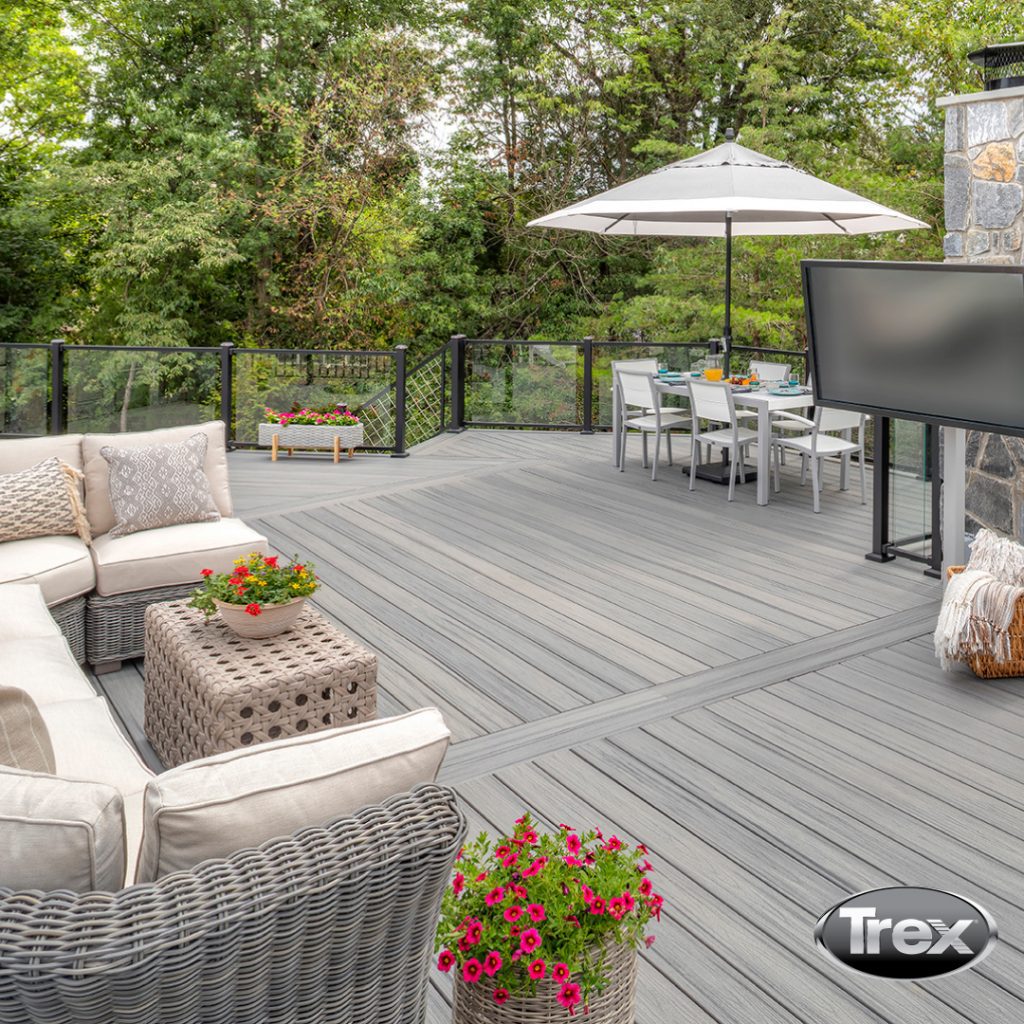
The most widely recognized type of composite decking is wood pulp composite, which blends wood fibers or pulp with plastic to create a versatile and eco-friendly material. The manufacturing process starts with finely ground wood particles—often reclaimed or recycled—mixed with high-density polyethylene (HDPE) or polypropylene.
This mixture is then heated, extruded into board shapes, and textured to mimic the look of natural wood. The result is a durable, splinter-free surface that resists rot and insect damage better than traditional lumber.
Wood pulp composite decking comes in a variety of brands, with many manufacturers offering their own unique formulations and styles. Among the most prominent are Trex, TimberTech, and Deckorators, all of which are available through AdvantageLumber.com.
Trex is the largest composite decking manufacturer who pioneered the composite decking industry. TimberTech and Deckorators have built reputations for unique innovative designs and performance enhancing features. All of these brands offer extensive color options and textures, making wood pulp composite a go-to choice for homeowners seeking both aesthetics and performance.
Mineral-Based Composite Decking
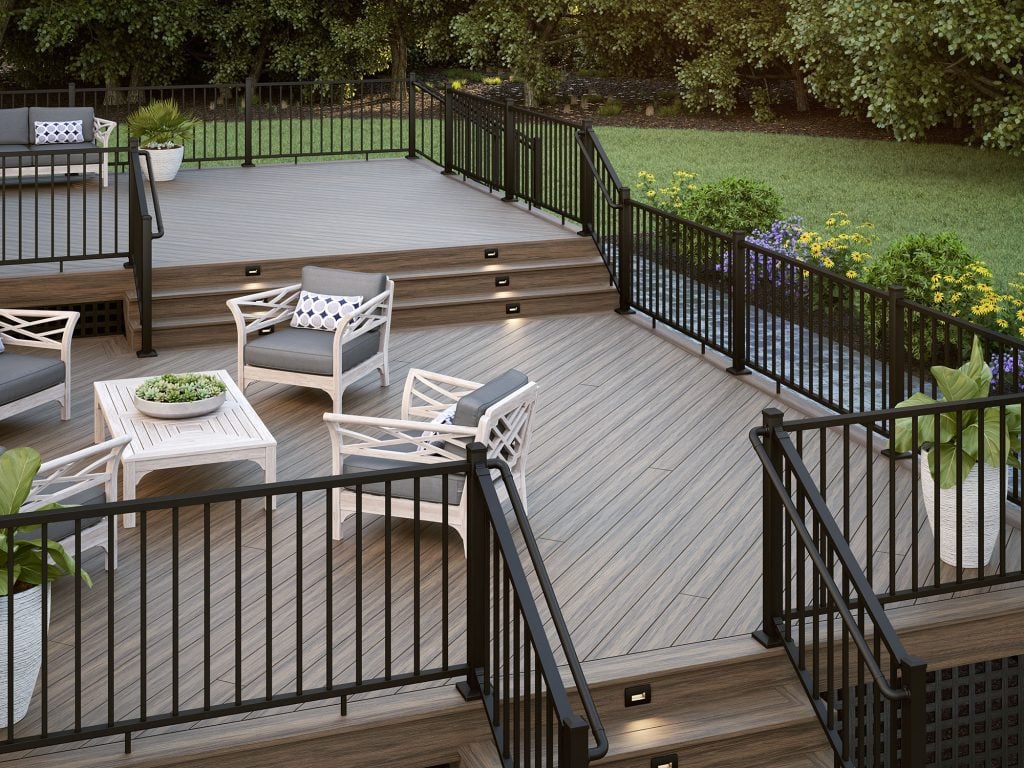
A newer player in the composite decking world is mineral-based composite, which swaps out wood pulp for stone dust. This variety is made by combining finely ground mineral particles—essentially stone dust—with plastic, which is then infused together and stretched during the manufacturing process. This stretching technique enhances the material’s strength, creating a product that’s exceptionally robust and resistant to wear.
The only mineral-based composite decking currently offered is Deckorators Surestone, also available through AdvantageLumber.com. Surestone stands out from traditional wood pulp composites with several key benefits: added strength for heavy-duty applications, reduced heat retention for more comfortable barefoot walking, and superior moisture resistance. In fact, Surestone is rated for ground contact, a feature most wood pulp composites don’t recommend, making it ideal for decks in damp or low-lying areas.
PVC Decking
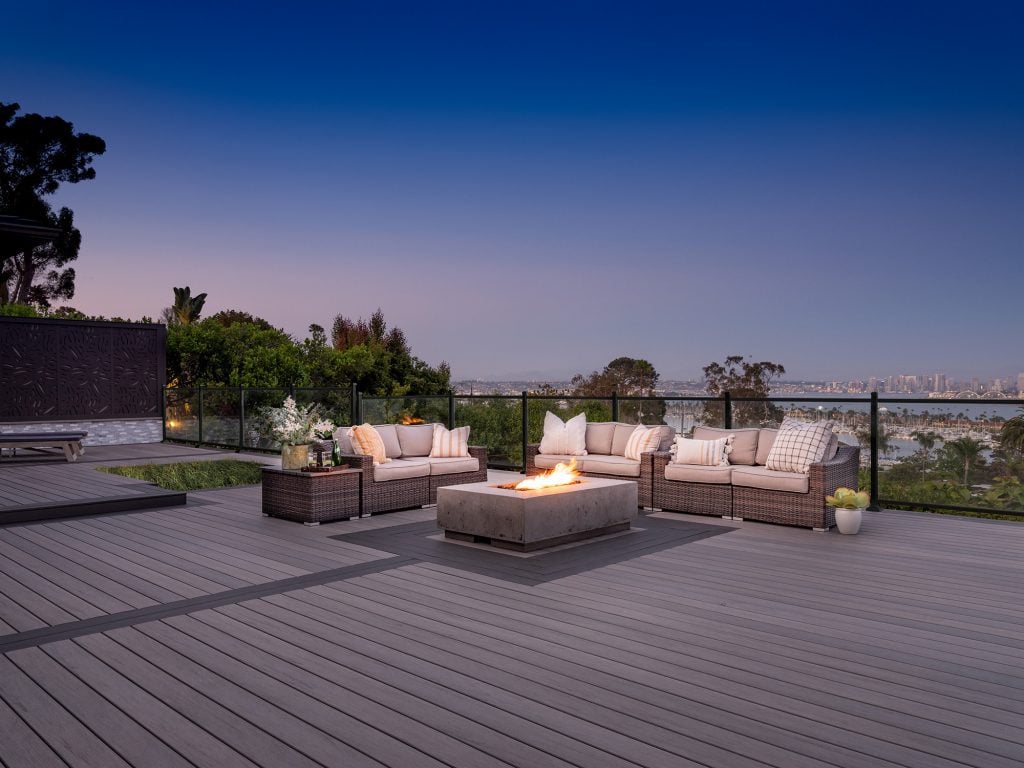
While not a traditional composite in the sense of blending wood or minerals with plastic, PVC decking deserves a spot on this list due to its popularity and performance. Made from 100% polyvinyl chloride (PVC), this type of decking contains no organic materials, rendering it completely waterproof. This makes PVC decking an excellent choice for wet environments like docks, pool decks, or rainy climates.
One of the top options in this category is TimberTech Advanced PVC Decking, sold by AdvantageLumber.com. TimberTech has long been a leader in PVC decking, offering a product that combines durability with a premium wood-like appearance. Its 100% waterproof nature ensures it won’t warp, rot, or degrade in moisture-heavy conditions, and it’s also highly resistant to fading and staining, making it a low-maintenance favorite.
HDPE Decking
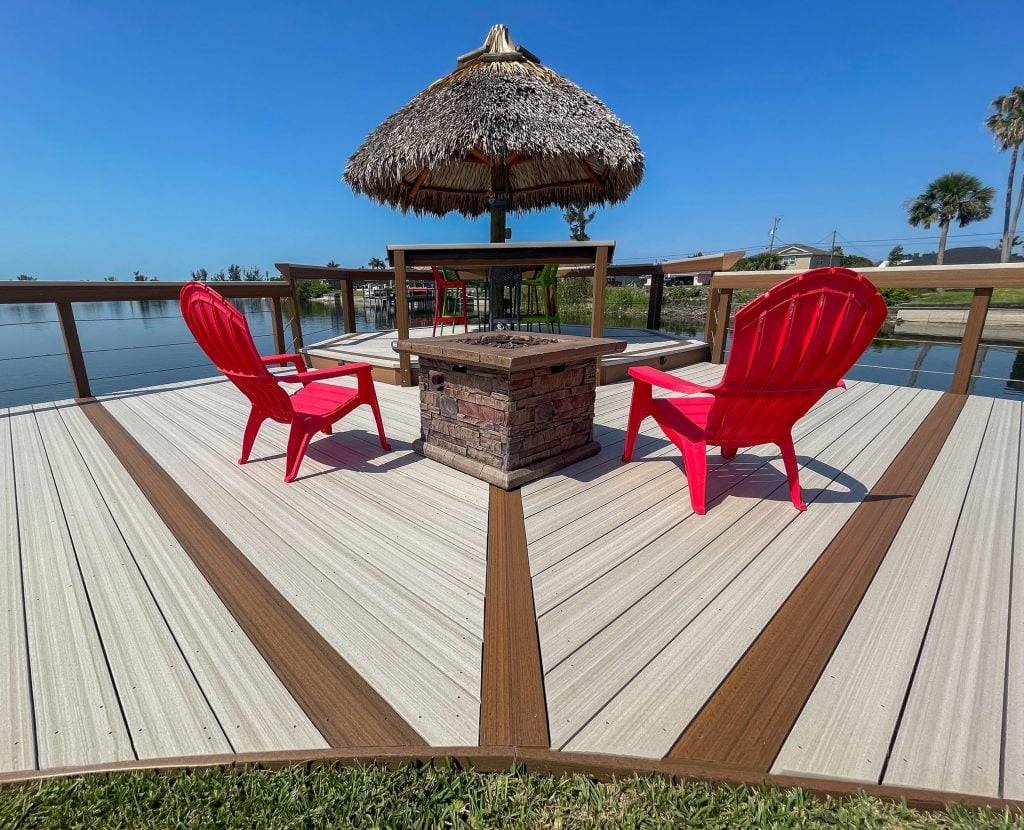
Finally, we have HDPE decking, another non-traditional composite made from 100% high-density polyethylene. Like PVC, it contains no wood or organic fillers, making it fully waterproof and perfect for wet applications. HDPE decking is known for its toughness and resistance to harsh weather, chemicals, and UV rays, which makes it a standout option for demanding environments.
A prime example of HDPE decking is TanDeck, available through AdvantageLumber.com. TanDeck is engineered for longevity and performance, offering a slip-resistant surface and a natural wood-grain texture. Its waterproof properties make it an excellent fit for marinas, boardwalks, or any deck exposed to constant moisture.
Choosing the Right Composite Decking
With so many varieties to choose from, the best composite decking for your project depends on your specific needs. Wood pulp composites like Trex, TimberTech, and Deckorators offer a classic look with proven reliability. Mineral-based Surestone from Deckorators brings added strength and moisture resistance to the table. For fully waterproof options, TimberTech Advanced PVC and TanDeck HDPE provide unbeatable performance in wet conditions. Whatever your preference, AdvantageLumber.com has you covered with top-tier brands and expert guidance to bring your outdoor vision to life.
